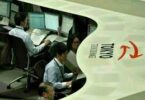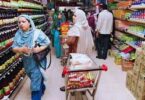F.P. Report
PESHAWAR: Traders and exporters of Pakistan and Afghanistan have identified bottlenecks that were hampering bilateral and transit trade, including complicated regulations and procedures, strict policies and cumbersome goods’ clearing processes, urging that Islamabad and Kabul to review their policies to further improve mutual trade and economic relations between the two neigbouring countries.
They expressed these views, during a joint meeting of Pak-Afghan traders, which held under chairmanship of the Sarhad Chamber of Commerce and Industry (SCCI) president Sherbaz Bilour here at the chamber house on Tuesday.
Besides, SCCI senior vice president Engr Manzoor Elahi, former president Faiz Muhammad, ex-SVP Shahid Hussain, former vice presidents Malik Niaz Muhammad Awan, Abidullah Yousafzai, Abdul Jalil Jan, executive committee members Mujeebur Rehman, Zahoor Khan, Muhammad Aurangzeb, Ihsanullah, Aftab Iqbal, Afghan Consul General in Peshawar, Najeebullah Ahmadzai, PAJCCI Afghanistan chapter president Khan Jan Alkozai, Afghan trade attaché Fawad Arash, a large number of Pak-Afghan traders, exporters and importers were present in the meeting.
The participants demanded the introduction of a visa free entry regime for the business community, making proper consultation with relevant stakeholders before implementation of the new Afghan Transit Trade Agreement. The participants furthermore proposed the launch of a joint bonded carriers system between Pakistan and Afghanistan to address the issues of transport.
Sherbaz Bilour while speaking on the occasion informed that the customs authorities had recently issued a notification regarding reduction in values of more than 51 Afghan origin imported items, due to which, saying that a noticeable increase in mutual Pak-Afghan trade and transit trade was witnessed. He added the SCCI was making efforts to decrease customs values on the rest of the Afghan imported items.
Emphasizing that Islamabad and Kabul review their policies for redressal of business community reservations and difficulties on both sides of the border, SCCI chief called that the business community and relevant stakeholders should be consulted before finalization and implementation of new ATTA – Afghan transit trade agreement. He also proposed the introduction of a joint bonded carriers system to ease difficulties of Pak-Afghan transporters.
Similarly, he suggested the visa-free entry for the business community, strengthening linkages and effective collaboration and coordination between relevant departments/authorities of Pakistan and Afghanistan.
Najeebullah Ahmadzai, Afghan Consul General in Peshawar told the participants said his country is fully committed to further improve bilateral trade and economic relations with Pakistan, claiming that they had raised Pak-Afghan traders and exporters with concerned authorities in an effective manner and resolved them on priority basis.
The Afghan diplomat said it is a matter of great satisfaction that Islamabad and Kabul want to further improve the mutual economic and trade ties, which according to him, the gesture from both sides would be beneficial for bringing economic prosperity, development and everlasting peace in the whole region.
Khan Jan Alokzai, president PAJCCI Afghanistan chapter asked the Pakistan and Afghanistan government to set aside their political differences and make joint efforts for facilitating the business community of their countries.
He added that tension between Pakistan and Afghanistan directly affected the people and business community of Khyber Pakhtunkhwa and Balochistan due to close proximity of their borders as well as the unrest was also a matter of grave concern for the whole region. He urged Islamabad and Kabul to take joint measures to remove hurdles in the way of Pak-Afghan mutual and transit trade.
Other speakers including Faiz Muhammad Faizi, Abdul Jalil Jan, Mujeebur Rehman, Zahoor Khan, Muhammad Aurangzeb, Aftab Iqbal on the occasion pointed out impediments in way of Pak-Afghan trade and suggested number of proposals to remove them.






